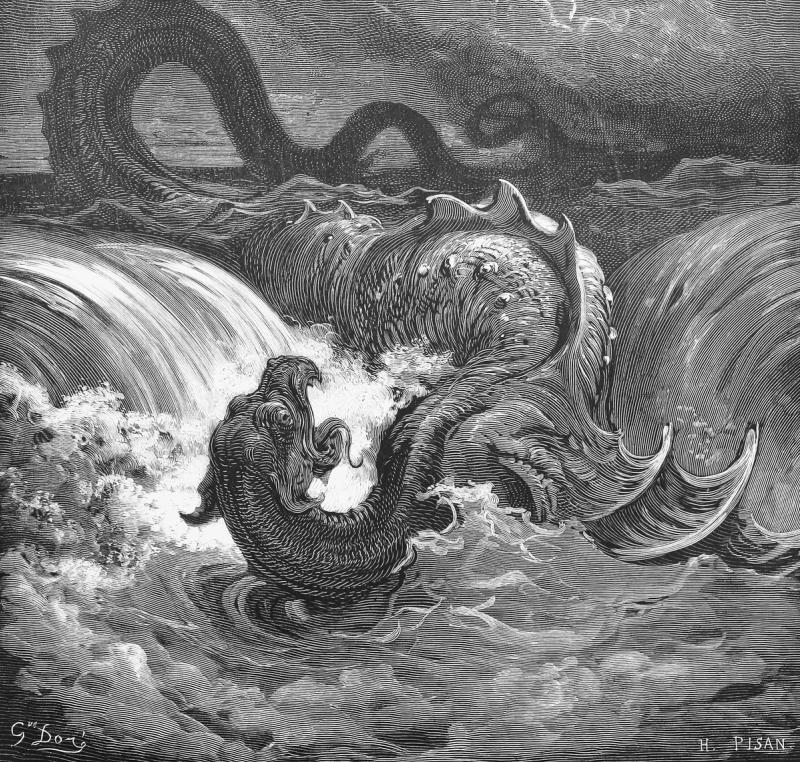If Americans recognize the name Eric Voegelin at all, it is for his critique of utopian political visions, encapsulated in the phrase, “don’t let them immanentize the eschaton.” The heady saying was emblazoned on political buttons worn by the Young Americans for Freedom in the 1960s. William Buckley actually coined the phrase after reading Eric Voegelin’s The New Science of Politics, which stated that “a theoretical problem arises . . . when Christian transcendental fulfillment becomes immanentized” (120). Since then, the phrase has taken on a life of its own, finding a place in publications from National Review to Huffington Post.
But what Voegelin had in mind was much more than a political “gotcha” soundbite for conservatives to deploy against progressives. The concept was part of his broader and lifelong project to better understand the intersections of history, politics, and religion. Born in 1901 and dying in 1985, Voegelin’s life experiences made him particularly attuned to such cultural interplays; he lived through both World Wars and witnessed the rise of fascism in Italy, communism in Russia, and Nazism in his German homeland. He boldly critiqued the Nazis, eventually escaping to America in 1938 where he continued his academic career. Voegelin’s output was prolific, though frequently opaque. As Bradley Birzer puts it, “while some of his ideas simply pop off the page, most linger in some kind of morass of stumped curiosity within the brain of even the most willing.” Despite the fog, Voegelin’s work offers important insights meriting further exploration.
Mass Communication as Intoxicant
One of Voegelin’s ongoing interests was how communications and technology impacted culture, especially in democratic societies. He warned that the “media of mass communication, such as film, radio, or television” was coming to serve the “primary function…of an intoxicant.” Voegelin argued that, “communication has become a highly organized business with vested interests” and “all too often the result will be that men at large are induced to vote for a candidate for whom they would never vote without the psychological pressures of a campaign, or to buy a piece of industrial junk that they never would buy if their good sense had not been destroyed by skillful advertising.” Such an intoxicating stream of constant exposure to information and advertising, “may seriously damage the personal organization of a man’s life…under the constant stimulation of anxieties and passions.” This places “the agents of communication…in the morally dubious position of destroyers of their fellowman’s order.”
Voegelin’s argument might be extended to say that mass communications not only can function as an intoxicant, but also as an intrusion. Mass communications technology intrudes upon and interrupts one’s life in ways that Voegelin detected only in embryonic form. Today’s technological and media intrusions come at an overwhelming pace. Average smartphone users in recent years get “between sixty-five and eighty phone notifications a day,” not to mention the advertisements baked into social media feeds, in addition to the marketing already interrupting every other form of media consumption from print magazines to television. Voegelin concluded in the mid-twentieth century, “that certain procedures of communication in our time are unfit for the achievement of moral purpose, or even destructive of morality….The development of communication as an industry for pragmatic and intoxicant purposes is certainly a symptom of moral crisis…[and has] an impact on the functioning of contemporary democracy.” Voegelin’s concerns would be only magnified today, which makes it all the more vital to resist such intoxication. Practicing periodic digital detox is worth consideration, and can have positive long-term benefits. Worthy also, is Neil Postman’s advice to keep “an epistemological and psychic distance from any technology, so that it always appears somewhat strange, never inevitable, never natural” (185).
Gnostic Self-Salvation
Another topic Voegelin explored extensively was Gnosticism and its connections to social movements and ideologies. Though Voegelin’s use of the term is creative and generalizing to be sure, he frequently targeted Gnosticism in his intellectual cross-hairs because he saw it as one of humanity’s perennial tendencies. Michael Franz explains that Voegelin used the term Gnosticism in a general sense “to signify the belief that it is possible for human beings to escape or eliminate the evils and hardships that afflict our existence by means of the power conferred by a special knowledge.”
While Voegelin was not claiming that the 20th century saw a revival of ancient Gnosticism precisely, he was arguing that a similar view of the world was at work, whether in ideological movements or in religious shifts from transcendence towards immanence. Voegelin saw this as a long outworking of trends since the Middle Ages away from a transcendent God with an ordered creation, towards an immanent universe with no destiny outside of human existence, what Charles Taylor calls a “closed immanent frame” (548). “The City of God,” as Voegelin puts it, has metamorphosized “into the City of Man; the apocalyptic into the ideological millennium; the eschatological metastasis through divine action into the world-immanent metastasis through human action.” Voegelin concludes that the result is “self-salvation,” where “man assumes the role of God and redeems himself.”
Ontological Descent
Voegelin approaches this shift from transcendence to immanence and self-salvation from a variety of angles, one of which is captured in his vivid phrase, “down the ontological scale from God to biological drives.” Voegelin maps this descent from Thomas Hobbes’ Leviathan, which he argues “eliminated the divine summum bonum from the hierarchy of being.” Once “the rationality of order had disappeared,” Hobbes “introduced the summum malum, the fear of death, a passion, as the new force that would inject reason into the order of society. The issue has never been restated with such clarity as on this occasion of its first appearance in Hobbes.” Voegelin continues, “By the eighteenth century, the new situation of a society without the order of a divine summum bonum is already taken for granted; and the search for ontological substitutes of order, only half-conscious of the implications of the enterprise, is well under way.” What were the “ontological substitutes” Voegelin mapped?
He sees a major substitute in the Age of Reason where “the thinkers of the eighteenth century believed to have found in Reason, capitalized, the substitute for divine order.” Voegelin anticipates the unalterable problem inherent in this approach: “The construction was unstable, because human reason in the immanentist sense, that is, a reason without participation in the ratio aeterna, is devoid of ordering substance. One could talk about reason, and proclaim that certain truths were self-evident, as long as the contents of order still found social acceptance by the momentum of tradition; but the question of validity could not be deferred forever.” Perhaps this finds parallel in the growing questions about the viability of classical liberalism when unmoored from traditional conceptions of God, humanity, and morality. Was Voegelin making an argument similar to those found more recently in Why Liberalism Failed or The Demon in Democracy?
Once the “vacuum created by the abolition of the highest good as the source of rational order” is created, many substitutes rush in to fill the void. First comes reason detached from higher truth, then comes pragmatism or utilitarianism with the “adequate coordination of means and ends.” From there Voegelin summarizes the descent:
The attempt to substitute the useful for reason was followed by further steps of ontological descent–to the technological forces of production with Marx, to the racial structure of human groups with Gobineau and his successors, and finally to biological drives in depth psychology. The substance of order, thus, moved down in the ontological scale from God, through reason, pragmatic intellect, usefulness, production forces, and racial determinants, to biological drives.
Would there be additional steps to chart in this ontological descent since Voegelin’s death in 1985, or are biological drives at rock-bottom? How would postmodern conceptions of truth, constructivist self-creations, and linguistic theories fit in Voegelin’s ontological scale? Perhaps from biological drives we have gone to will itself, or to words, or constructions of the self.
The De-Divinization of Man
Voegelin’s genealogy of ontological descent relates to his reflections on the loss of human dignity. He argues, “the loss of dignity comes about through the denial of the participation in the divine, that is, through the dedivinizing of man.” In his view, there is some sense in which human beings—as made in God’s image and remade in Christ—share “participation in the divine.” For Voegelin, this “participation in the divine…essentially constitutes man.” While theological precision is not Voegelin’s expertise and his actual theological positions are frequently foggy and heterodox, he seems to be on to something. When the Imago Dei—which grounds each person’s inherent value—is overshadowed, human dignity tends to get overshadowed too. As Voegelin puts it, “dedivinizing is always followed by a dehumanizing. One cannot dedivinize oneself without dehumanizing oneself—with all the consequences of dehumanization that we shall still have to deal with.”
The loss of a sacred conception of man, he argues, is intimately related to what comes prior: a “deliberate closing of oneself to the divine, whether to the…philosophical or the revelational divine.” Once this divine “ground of being” is lost, “there occurs a loss of reality” and hence a loss of “this decisive part that constitutes man.” There is also great irony here. A loss of belief in the divine leads to a lower, dedivinized conception of man. But paradoxically, when the divine reality is lost, “man is put in the place of the lost divine reality, which alone grounds the reality of man, so that in place of the ground of being as the cause of being, man as the cause of being advances to the point of exaggeration in the idea that man must be the creator of the world.” When the divine is lost, man’s unique status as divine image-bearer is lost too. But as such divine grounding for being disappears, material man is all that is left, thus becoming the measure of all things: man is god.
Further Up and Further In
Much more could be said about Voegelin. His writings are relevant and stimulating, yet challenging and dense. Perhaps something in this introductory piece will kindle further interest. If so, a good place to start is VoegelinView, which “is an interdisciplinary and international website dedicated to the thought of Eric Voegelin as well as to political philosophy as public commentary that includes all aspects of culture.” Countless excerpts from his voluminous works can be found there, helping the interested reader determine which of his books to start with. If nothing else, in reading Voegelin, readers are beckoned—to borrow a phrase from C.S. Lewis’ The Last Battle—to “come further up, come further in!” Voegelin recognizes the transcendent, and such willingness to broach historical and cultural topics from a perspective that cherishes transcendent truth and religious sensibilities is a welcome breath of fresh air in a field where such things are frequently ignored or dismissed. Voegelin’s willingness to express such Christian realism allowed him to consider variables and concepts that other historians and political scientists avoided, which gives his writing a depth and validity that sweetens with age.
Joshua Pauling teaches high school history, and was educated at Messiah College, Reformed Theological Seminary, and Winthrop University. In addition to Modern Reformation, Josh has written for Areo Magazine, Front Porch Republic, Mere Orthodoxy, Public Discourse, Quillette Magazine, Salvo Magazine, and The Imaginative Conservative. He is also head elder at All Saints Lutheran Church (LCMS) in Charlotte, North Carolina.



